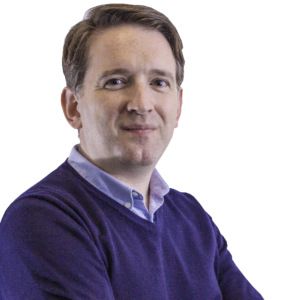Opinion
‘Mere te’ Vicar?: Remember that you are dust
Darren McCallig
This article is more than 8 years old.
At Saint Alban’s Church we are in the middle of the season of Lent.
Activation not abstinence?
For many, this period of 40 days of fasting and abstinence is the perfect time to break unhealthy habits. For example, some people give up cigarettes, while others stay off alcohol or forgo chocolate.
In recent times there has also been a move to take things up for Lent. With the evenings finally getting longer and the weather improving, some people begin going for a walk every evening or getting up for a run before work.
The goal of all this sacrifice and self-denial is to arrive at Easter (April 16) feeling healthier and happier, with a few inches subtracted from our waistlines and a few years added to our life expectancy.
Living on Lent time
What a load of nonsense! Lent is not a churchy version of a slimming club or an attempt to reverse the ageing process. In a sense, it is precisely the opposite. Lent is about mortality and death. It is about reassessing our whole lives in light of the fact that we are mortal, that our time here is limited, and that some day it will come to an end.
To underline the point, we began Lent at Saint Alban’s with a ceremony on Ash Wednesday (March 1) where black ashes were rubbed into people’s foreheads with the words: “Remember that you are dust, and to dust you shall return.”
It was a powerful reminder that no amount of jogging can outrun father time and that sooner or later we all have to face the big questions of life and death.
The top five regrets
One person who faced those questions repeatedly and honestly was the Australian palliative care nurse Bronnie Ware. She spent several years caring for patients in the last 12 weeks of their lives and recorded their ultimate concerns in a blog, which later became the bestselling book ‘The Top Five Regrets of the Dying’. Her findings should be essential reading for us all.
Ware summarised the number one regret she encountered in her patients as “I wish I’d had the courage to live a life true to myself, not the life others expected of me.”
Number two on her list was “I wish I hadn’t worked so hard” – a sentiment she said she had heard from every single male patient she had nursed. Yes, you read that correctly: every single one!
The three other top regrets were “I wish I’d had the courage to express my feelings,” “I wish I had stayed in touch with my friends” and “I wish I had let myself be happier.”
A bucket full of dust
What’s particularly striking about Bronnie Ware’s list is that there is no mention of those achievements and experiences that feature so prominently on so-called ‘bucket lists’. Bungee jumping, scuba diving or travelling to exotic locations do not figure.
Instead, it is the inner journey and the courage to plumb our own depths that features most prominently when death approaches and we finally acknowledge the simple truth: “Remember that you are dust, and to dust you shall return.”

About
Darren McCallig
As the Irish-born vicar of St Alban’s Anglican Church, Darren has a congregation of over two dozen different nationalities (st-albans.dk). Celebrating diversity and building inclusive community are his divine aspirations. And yes – he enjoys a nice cup of tea.










































